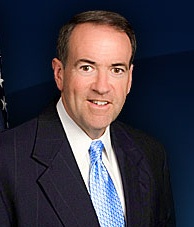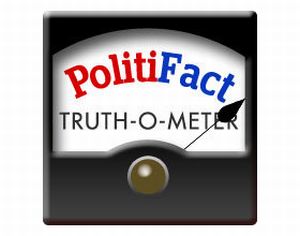 The comments I’ll respond to were on the previous blogs, in case you wish to check out any of them:
The comments I’ll respond to were on the previous blogs, in case you wish to check out any of them:
- Part 1: Racial Issues, Helping the Poor and Financial Responsibility
- Part 2: Which Candidate Will Best Protect Religious Liberties?
- Part 3: Which Candidate Has More Christian Beliefs? (And Should I Vote for a Mormon?)
- Part 4: Do the Candidates Have Different Positions on Abortion and Does it Matter?
- Part 5: Is it Wrong to Vote for the Lesser of Evils? Shouldn’t We Instead Vote for a Third Party Candidate?
- Part 6: Responses to six comments, including that we should never vote for a candidate who would allow abortion for rape and incest
The good news is that with the election next week, this is my final election blog! (Monday’s blog will be Scripture and prayer for our nation.) I’m relieved to finish, because I’m disillusioned by politics and I feel torn by the ethical dilemmas. I have heard things I agree with said by nearly everyone who disagrees with me. I keep finding myself thinking, “Yeah, that’s exactly what I used to say!” Below are comments I’ve received, followed by my responses.
“I don’t have to vote for someone perfect, but he does have to be a Christian.”
 I’ll answer with what someone said in another comment: “Neither Sir Winston Churchill nor Franklin Roosevelt were believers as far as I'm aware. Yet God sovereignly used them to deliver the democratic nations. Many Christians at the time perhaps would not have chosen these men for various reasons, but because one is saved does not mean he is fitted for a governmental role.”
I’ll answer with what someone said in another comment: “Neither Sir Winston Churchill nor Franklin Roosevelt were believers as far as I'm aware. Yet God sovereignly used them to deliver the democratic nations. Many Christians at the time perhaps would not have chosen these men for various reasons, but because one is saved does not mean he is fitted for a governmental role.”
“Anyone who is on the ballot is electable, and Virgil Goode is on more than half the state ballots.”
Virgil Goode, of the Constitution Party, is favored by many who have made comments. One article quotes Goode as saying, "We won't win the popular vote probably but we have a shot of winning the Electoral College.”
 But he is polling at less than 1%, with the two leaders both at 47%, and the Libertarian candidate getting most of the rest. Under any scenario, how could the Electoral College move his way? I welcome disagreement in the comments, but in my opinion, either Virgil Goode believes what he said and is out of touch with reality, or he does not believe it and is speaking falsehood. Neither is a good sign.
But he is polling at less than 1%, with the two leaders both at 47%, and the Libertarian candidate getting most of the rest. Under any scenario, how could the Electoral College move his way? I welcome disagreement in the comments, but in my opinion, either Virgil Goode believes what he said and is out of touch with reality, or he does not believe it and is speaking falsehood. Neither is a good sign.
Dan Phillips wrote me, “If by some parting-of-the-Red-Sea level miracle a third party candidate won, he would have BOTH parties of BOTH houses of Congress opposed to him. He would have no one to draft and champion his legislature. He would be like a third-team player on a football field. It wouldn't matter if he were smarter, more savvy…they all would be focused on bringing him down.”
“I don’t believe in voting against a candidate, only for a candidate. I can’t vote for the one and I am not going to just vote against the other.”
But when there are only two people who can win, you do vote against one by voting for the other. (Why do we oppose voting against someone? Because it sounds negative?) If you do not vote for the only candidate who can defeat the one you most oppose, then you are not using your vote to oppose the evil you are most against.
If anything is at stake in this election, there are things you are for and things you are against. You vote for the one you are most for and least against. You vote against the one you are least for and most against. That’s just how it works.
“We are living in the last times, and evil is bound to increase. Government isn’t going to make a difference anyway.”
 This is the old argument that caused many Christians to withdraw from our culture in the first place. The idea is, “Why rearrange the furniture on the Titanic? The Bible says the ship’s going down, so no reason to try to keep it afloat.”
This is the old argument that caused many Christians to withdraw from our culture in the first place. The idea is, “Why rearrange the furniture on the Titanic? The Bible says the ship’s going down, so no reason to try to keep it afloat.”
Ever since I came to Christ in the early 1970’s, I’ve been told by people that Christ must return in the next five years. Well, it’s been forty years and there’s a lot more Christians could have done but didn’t.
We don’t know when this world is going to sink. Our grandchildren may grow old on it. So if we can do some good, and do what we can to hold on to some of the freedoms people died to protect, why shouldn’t we? If the price of getting someone in office to protect religious liberties is voting for a very flawed candidate, is that worth it? I think it may be.
“Please discourage everyone from wasting their time on politics. Get them involved in serving the sick and delivering good news to the poor.”
I certainly agree that we should focus on the gospel and helping the needy. But we are stewards, and as such are responsible for multiple callings, and all that God has entrusted to us. Ironically, the gospel’s reach has been impaired by so many Christians withdrawing from art, music, politics and so many other aspects of our culture.
 If we had no influence on the direction of our culture, as the early Christians had no voice in the Roman Empire, that would be different. But America is a nation that affirmed the rights to life and liberty, and there’s a long history of people fighting for and dying for those rights. The person who submitted this note has probably enjoyed those rights her whole life. In fact, those rights have allowed her the freedom to deliver the good news without being arrested or beaten. Yet she apparently doesn’t believe in doing what’s necessary to pass them on to others.
If we had no influence on the direction of our culture, as the early Christians had no voice in the Roman Empire, that would be different. But America is a nation that affirmed the rights to life and liberty, and there’s a long history of people fighting for and dying for those rights. The person who submitted this note has probably enjoyed those rights her whole life. In fact, those rights have allowed her the freedom to deliver the good news without being arrested or beaten. Yet she apparently doesn’t believe in doing what’s necessary to pass them on to others.
Some people do waste their time in politics by making it their god, as other people do sports, food preparation, crafts, music and art. But politics, like all these other things, certainly has its place.
“So whether you eat or drink or whatever you do [music, art, sports, politics, evangelism, helping the poor], do it all for the glory of God” (1 Corinthians 10:31).
“I'll just have to agree to disagree with you on your support of the Republican Party.”
 The funny thing is, I am no supporter of the Republican Party. I’ve never given them a dime. I have not voted Republican in three of the previous six elections. Every election I vote for and against candidates and ballot measures, not parties.
The funny thing is, I am no supporter of the Republican Party. I’ve never given them a dime. I have not voted Republican in three of the previous six elections. Every election I vote for and against candidates and ballot measures, not parties.
Five years ago I wrote a controversial blog in which I called upon Christians not to support Rudy Giuliani for president after Pat Robertson had come forward to support him as the Republican Party nominee. I said, and I still say, I will never vote for a president who does not defend the righto life of unborn children.
Now, will I vote for someone who would save 98% of unborn children, while permitting the death of the 2%? I profoundly disagree about the 2%, but realizing we live in a country where forty years of federal laws have protected 0% of unborn children, I will support a candidate who wants to save 98%, when the only alternative who could win is a candidate utterly committed to insuring that not one unborn child would have legal protection. People keep telling me how Romney has flip-flopped on abortion. Of course he has. But has he flip-flopped the right direction? I only wish President Obama would flip-flop on abortion!
I don’t believe we should seek to be either conservative or liberal, but to be Christian, which sometimes means helping as many people as you possibly can, even when you can’t yet help all of them.
“To me, voting is not to influence results, but simply to follow my conscience and obey God.”
Some godly people have said this, grieved that I would take into consideration such unspiritual things as whether someone has a chance of winning an election. A good man wrote a blog disagreeing with me, saying, “My perspective precludes me from voting for either of the two majority candidates. I view voting as a choice between obedience and disobedience to the instructions of God.”
The implication is that those who vote differently than he does are disobeying God. But I find myself looking at a godless post-Christian culture. Apart from a great spiritual awakening from God, America will not return to its godly roots.
So for me, voting is not a pulpit from which I affirm the greatest ideals, without any hope of influence, but merely a tool to do the best I can to support what good is possible, and to resist evil to the limited extent that I can.
My vote does not mean I’m aligning with all of a candidate’s views or his religion. But I seek to be obedient to God by praying for direction and making a decision that is in keeping with a conscience that compels me to believe I should use my vote to—possibly, at least—make a difference.
“Christians should stop saying the right candidates will never be elected, and simply vote for them so they WILL be elected.”
I’ve been there and said that! In two elections I wrote in Alan Keyes, because he was a solid prolife believer with great vision. I hoped and prayed that he would be our first African American president. But when I talked about him to my Christian friends, they’d say, “He’d be great, but he’ll never be elected.” So I responded, “Vote for him and maybe he will be elected!”
In a blog five years ago I addressed the question of whether Mike Huckabee was electable. I wrote:
I confess I get impatient with Christian leaders who withhold support from the best candidates because other candidates, including prochoice ones, are supposedly more “electable.” If we’d just, on the basis of conscience, give support to people of God-honoring conviction instead of withholding it, some of them would become electable.
 I will never forget when National Right to Life came forward to support Fred Thompson, who was not as solidly prolife as Mike Huckabee. A friend who worked for NRTL admitted to me, “We just thought Huckabee wasn’t electable.” Thompson stayed in the race just long enough to ensure McCain had the nomination instead of Huckabee. Prolifers cancelled out each other’s votes. That happens every election.
I will never forget when National Right to Life came forward to support Fred Thompson, who was not as solidly prolife as Mike Huckabee. A friend who worked for NRTL admitted to me, “We just thought Huckabee wasn’t electable.” Thompson stayed in the race just long enough to ensure McCain had the nomination instead of Huckabee. Prolifers cancelled out each other’s votes. That happens every election.
Sadly, many Christians will just vote the party line. If they’re Democrats they’ll vote for Obama, if Republicans for Romney, if Libertarians for Gary Johnson (or write in Ron Paul), if Constitutional for Virgil Goode. And a number, unhappy with all those alternatives, will write in Jesus for president. As the website says, “Say NO to Satan by writing in Jesus, as he is the only alternative.” (Not sure who his vice-president would be.)
The argument, “If Christians would just support the best candidate, he would win!” has a fatal flaw—politically, you cannot get evangelicals to agree on who’s the best candidate. Typically our votes are spread between four or five candidates. No matter who the best candidate is, if he’s third party many won’t vote for him, and if he’s Republican many won’t vote for him (that includes Christians in the Democratic Party and in all the third parties).
Take an increasingly unchristian national consensus, then couple it with the fact that the declining number of serious Christians are hopelessly split in their convictions about who to vote for. This is a formula that is a recipe for failure. And everyone, including me, has this great solution—“All of you just vote for the candidate I believe is best!” Alan Keyes, Mike Huckabee and Rick Santorum all come to mind, but not many of you seemed to agree with me…nor I with you. :)
So we need to ask God for direction, then do the best we think we can with the vote given to us. If “vote your conscience” for you means vote for the best man even if he can’t possibly win, so be it. If it means vote for the man who could possibly win and would be better in defending religious liberties and the right to life and financial responsibility than the alternative candidate, so be it. Just realize that “vote your conscience” is what we’re all trying to do, but it never results in Christians voting for the same person.
“President Obama is the candidate who cares most about the poor and needy. He will get my vote.”
I don’t doubt that our president genuinely cares about many poor people. I do believe that like many politicians of both major parties, he thinks just giving people money solves their problems, when often it only increases dependence and insures ongoing poverty by removing incentives to work to the degree they are able.
But what troubles me most is how selective he is about which needy people he cares for. Clearly he cares nothing for unborn children. But what about people with disabilities? Speaking of Mike Huckabee, he wrote this a few weeks ago:
This week, Obama’s campaign website posted a letter from a young woman with Down Syndrome. She wrote that she works and pays taxes, but because she gets some government support, she’s one of the 47 percent that Mitt Romney doesn’t care about. It’s sad that she’s been convinced of such a false idea, and it’s sickening to use her to score political points. I know of no Republicans who begrudge help to those who genuinely need it. But I do know the Democratic Convention was practically a four-day infomercial for taxpayer-paid abortion, for any reason. Today, as many as 91 percent of babies diagnosed prenatally with Down Syndrome are aborted. If you’re going to claim to be the only party that cares about people with Down Syndrome, seems to me the least you could do is defend their right to live.
“No matter what, I still can’t vote for a Mormon.”
I understand this position. I am not one who has ignored or minimized the biblical problems with Mormonism. I would recommend reading the article by Pastor Robert Jeffress, pastor of First Baptist Church in Dallas, who ignited the country a year ago when he said that Mormonism was a cult. (Which, of course, it is.) Now he has changed his mind not about Mormonism, but about Romney as a candidate. It’s worth reading. I will quote here two things he said that I haven’t:
In October of 2011, the Obama Justice Department argued before the Supreme Court in the case of Hosanna-Tabor Evangelical Lutheran Church and School v. EEOC that the ministerial exemption to federal hiring standards should be rescinded. The revocation of that exemption would mean that churches could be forced to violate their doctrinal beliefs and hire homosexuals as pastors or women as priests.
An astonished Supreme Court asked the Obama representative if the federal government should have jurisdiction over whom a church hired as its minister and the representative said “Yes.” Fortunately, the Supreme Court unanimously rejected that claim. Yet, the fact that the Obama administration would state such a position should be chilling to people of any faith.
….A second milestone development this past year was President Obama’s public approval of homosexual marriage in May of 2012 which has both energized efforts of evangelical Republicans and at the same time diminished his support among evangelical Democrats (primarily Hispanics and African-Americans).
One does not have to be a homophobe to understand that it is impossible to reconcile homosexual marriage with the teaching of Jesus Christ who described God’s design for marriage as one man and one woman in a lifetime relationship (Matthew 19:4-6). Any deviation from that standard—adultery, polygamy, pre-marital sex, or homosexuality—is a sin according traditional Christian and Jewish teaching.
Beyond the theological objection to homosexual marriage, evangelicals see a flood of societal problems that will be unleashed on a country that attempts to redefine marriage.
“Pragmatism is compromise, and compromise is a sin.”
Some things, such as upholding the Bible and standing up for Christ, should never be compromised. But what about if you’re in management or representing a union in a dispute? Is compromise sin? No, compromise is necessary to reach an agreement. In fact, it can be a sin not to compromise. Yes, some families, churches and businesses have been hurt by compromise. But many families, churches and businesses have been hurt by a parent or leader who refuses to compromise.
Some of the same Christians who understand that compromise is part of the business and sports worlds, part of athletics, part of nearly everything, view politics completely differently.
 If this country is like a car driving 70 MPH toward a cliff that is 100 miles away, of course you want to stop it and preferably turn around. But what if, on the day you have to vote, your two options are to keep driving 70 MPH or slow it down to 30 MPH? At least if you slow it down, you buy some time to make an adjustment.
If this country is like a car driving 70 MPH toward a cliff that is 100 miles away, of course you want to stop it and preferably turn around. But what if, on the day you have to vote, your two options are to keep driving 70 MPH or slow it down to 30 MPH? At least if you slow it down, you buy some time to make an adjustment.
Is this a pragmatic action? Sure. So is brushing your teeth, or putting gas in your car. Using your brain to make wise choices between limited options is being pragmatic. Compromising values is wrong, but making wise decisions to bring about the best possible results in keeping with your values can be right.
As there is good and bad cholesterol (so my doctor tells me), I think there is bad pragmatism and good pragmatism. Bad pragmatism is when principles are violated; good pragmatism is when godly wisdom is exercised to make the best of the available options.
“There is no difference between Obama and Romney.”
Now, you can argue that in some areas the candidates don’t differ much. But it’s simply inaccurate to say there’s no difference at all. One is absolutely committed to using tax dollars to fund abortions overseas. The other has promised to stop this through reinstating the Mexico City Policy. And if he is as concerned about his image as his critics say, surely he would not begin his presidency by breaking that promise.
 PolitiFact’s Truth-o-Meter demonstrates that both President Obama and Governor Romney have said things that are true, mostly true, mostly false, and false. It also measures what issues they’ve flip-flopped on. While it recognizes Romney has flip-flopped from prochoice to prolife, it maintains he has not flip-flopped on gay marriage, which he opposes.
PolitiFact’s Truth-o-Meter demonstrates that both President Obama and Governor Romney have said things that are true, mostly true, mostly false, and false. It also measures what issues they’ve flip-flopped on. While it recognizes Romney has flip-flopped from prochoice to prolife, it maintains he has not flip-flopped on gay marriage, which he opposes.
President Obama, PolitiFact indicates, has flip-flopped on gay marriage. He said in 2008, "I believe marriage is between a man and a woman. I am not in favor of gay marriage."
In contrast, On Wednesday May 9, 2012 President Obama said, "I’ve just concluded that for me personally it is important for me to go ahead and affirm that I think same-sex couples should be able to get married."
What bothers me about President Obama’s change on gay marriage is not that he flip-flopped but that he landed on a position that would radically redefine marriage and family.
On the question of religious liberties, the two candidates are substantially different. Does anyone seriously believe Mitt Romney would act no differently than Barack Obama in regard to the right to hold minority religious positions? Of course he would. He is a Mormon, a religious sect that considers liberty precious. Were these liberties taken away, his own faith would be threatened. Hence, I believe he will be more likely to defend religious liberties than President Obama, who has attempted to take them away unlike any president before him.
We’ve recorded a four-minute video in which I share what is at stake in President Obama’s demand that Christian organizations and employers pay for insurance that provides abortions and contraceptives for their employees. I did a more detailed assessment of this in an earlier blog.
Since you don’t even like politics, why have you written these blogs?
 This one is my own question. I answered it the last time I wrote political blogs, four years ago. The answer was, because of my four grandsons, and my wanting them to have rights and not have to suffer under God’s judgment landing on a society in rebellion against him. And now, this time, I have a fifth reason—David Franklin.
This one is my own question. I answered it the last time I wrote political blogs, four years ago. The answer was, because of my four grandsons, and my wanting them to have rights and not have to suffer under God’s judgment landing on a society in rebellion against him. And now, this time, I have a fifth reason—David Franklin.
I have mixed feelings about this election. Partly because, whichever candidate wins, I will have low expectations. But lower expectations of government need not be cynicism. It can also be a reminder of the good news that God is the sovereign King, and that he alone is the hope of this nation. And even if this nation crumbles (which could happen under either presidential candidate, or be delayed to sometime in the future), God is the only hope of each person and each family. He has been that all along, but perhaps this time it will be just a little more obvious.
Meanwhile, regardless of our country’s direction, may we devote ourselves to passing on to our families what they so desperately need, so that they may love our Savior in this broken world, for God’s glory and their good:
We will not hide them from their children; we will tell the next generation the praiseworthy deeds of the LORD, his power, and the wonders he has done….which he commanded our forefathers to teach their children, so the next generation would know them, even the children yet to be born, and they in turn would tell their children. Then they would put their trust in God and would not forget his deeds but would keep his commands. (Psalm 78:4-7)
This is my last election blog in which I’ll say anything about the candidates. Monday’s blog will be Scripture and prayer for our country. Then the blog will be back to “normal,” with a variety of articles, videos, and matters of eternal perspective. We invite you to visit regularly, or sign up for our feed by email (enter your email address in the form at the top left corner of the blog). If you’re on Facebook or Twitter, please join me there too, where I share Scripture and great quotes daily.
Trusting in the Risen Jesus,
Randy
More Election 2012 Blog Posts
Part 1: Racial Issues, Helping the Poor and Financial Responsibility
Part 2: Which Candidate Will Best Protect Religious Liberties?
Part 3: Which Candidate Has More Christian Beliefs? (And Should I Vote for a Mormon?)
Part 4: Do the Candidates Have Different Positions on Abortion and Does it Matter?
Vote here photo credit: mhartford via photopin cc | Arlington photo credit: Stuck in Customs via photopin cc | Supreme Court photo credit | Speeding car photo credit: alwarrete via photopin cc



